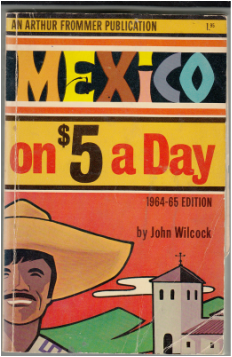
Many of us were brainwashed by the media into keeping the national economy going by buying stuff: houses, cars, campers, appliances, the latest fashions in clothes, furniture, sporting equipment, toys for kids and toys for grown ups. We were supposed to copy the life styles we saw on television, in magazines, and in newspaper ads.
“Who I am is defined by what I own” was the attitude we were expected to accept. Some people, rich or poor, still find it hard—or impossible—to let go of what they’ve collected over the years. Hoarding seems to be an epidemic. Whatever it is, “I might need it” someday. My wife and I don’t stumble around in rooms filled with paper bags of old newspapers or garages full of old cars and gas lawnmowers that haven’t moved for years, but it’s still a challenge to eliminate clutter from our lives.
The other challenge, of course, is to stop before we buy something new. Impulse buying may stimulate the economy, but it also can bury us alive if we let it.
Young people today, if recent surveys are to be believed, are less materialistic than previous generations. They’re less inclined to measure their success by the size of their house, the price of their car, the number of their possessions. They’d rather not be burdened by “things,” preferring to collect experiences instead of furniture, memories instead of fancy wardrobes. Tee shirts and jeans and sandals are good enough for them. They “travel light” as they make their way across the planet.
Not a bad way to go.
Folks are exploring the world more than in the past—and starting earlier. I know teenagers who pack a small bag and take off every summer, training across Europe, skydiving in Australia, camping in the American west, boating in Greece, and more. Travel is more popular than ever before—and for all ages, from kids to seniors. Look at the number of companies catering to all kinds of specialty travel and the number of travel blogs for independent adventurers.
Travel is more casual than it used to be (despite the increasing ordeal of flying). Arthur Frommer started a revolution decades ago when he introduced his first “Five Dollars a Day” books. The dollar amount has increased, but the concept has stayed with us. It’s the experience that matters, not luxury accommodations or gourmet meals. Sure, a splurge now and then is great, but what you’re doing with those hours in between is what matters. Don’t stay home admiring your new barbeque, get out there and see the world! Don’t worry about protecting your silverware and jewelry from burglars, stretch your brain with new experiences.
The electronic revolution with handheld devices and new apps makes it easier than ever to be footloose and follow our curiosity to wherever it takes us. Meanwhile, I have another bag of books to give to the city library and some old clothes to take to Goodwill.
 RSS Feed
RSS Feed